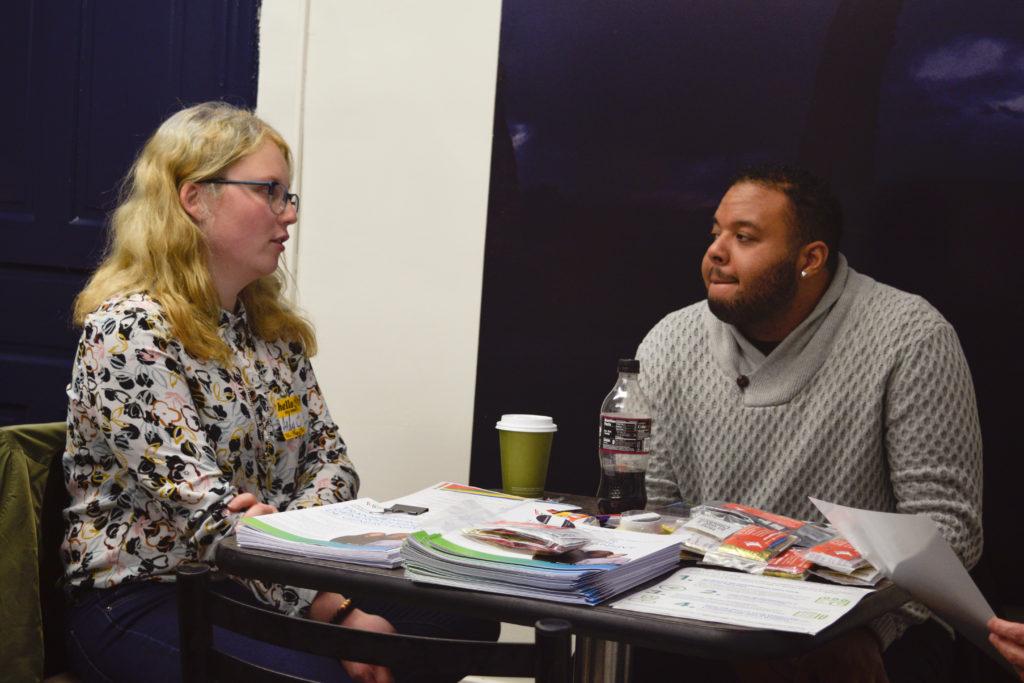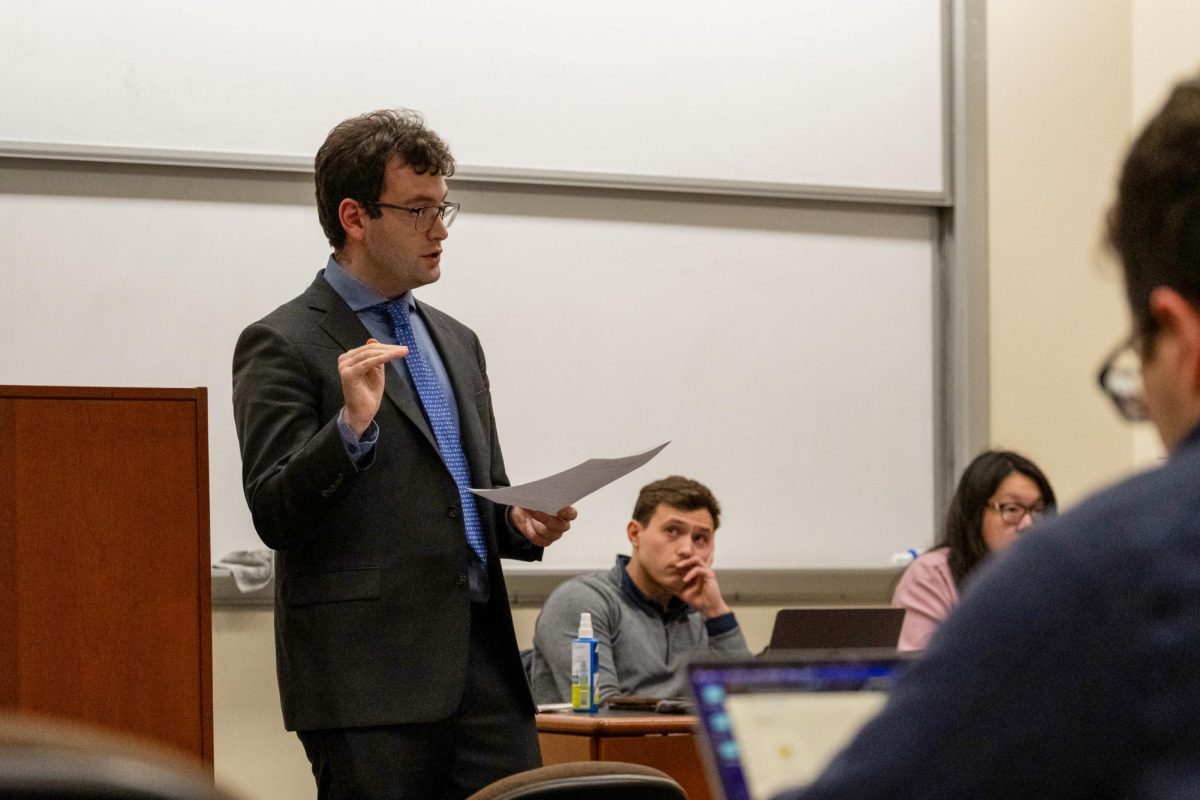Twenty student and University organizations are gathering together to host GW’s inaugural Trans Awareness Week.
The week, which began last Monday and ends on Trans Day of Remembrance Wednesday, features more than 15 events about transgender identity and community. Students involved in planning the series said the week is intended to empower transgender and nonbinary students and educate students about the transgender community and the issues it faces.
Junior Aedy Miller said they conceived of the idea for Trans Awareness Week after attending a workshop on transgender identity at last year’s diversity summit. Miller said they initially hoped to host their own workshop but later approached Multicultural Student Services Center Director Michael Tapscott to propose a series of programming that became Trans Awareness Week.
“It’s remarkable that we’ve actually been able to pull this off, and I know that several people have expressed to me the importance of even seeing that GW is doing something particularly for and by the trans community,” Miller said. “Just that in and of itself means so much.”
Tapscott greenlighted the idea at the beginning of the semester, and Miller began planning Trans Awareness Week in September, they said.
The week’s events included a spoken word mic night celebrating trans artists, a “Transgiving” dinner and a tea party where participants could learn about hormone replacement therapy. The series ends with a vigil in Kogan Plaza Wednesday for those who have lost their lives in transphobic acts of violence.
“It’s a whole week where folks are celebrating, advocating for, remembering, lifting, empowering trans and nonbinary people,” Miller said.
They said they reached out to communities representing almost every race, gender and sexuality on campus to make the week’s events as inclusive as possible, because LGBTQ spaces are often white-washed. They added that the week received an “immense” response from student organizations.
The newly launched Transgender and Non-Binary Students of GW, Students Against Sexual Assault and the Black Women’s Forum are among the several student organizations hosting events during the week. The Honey W. Nashman Center for Civic Engagement and Public Service and the American studies department are also sponsoring the event.
“I hope what people take away is that trans people – we’ve been here, we are here and we will always be here – and that’s not just on campus, that’s everywhere,” Miller said.
Miller said the week aims to educate students on issues their transgender peers face on campus, like ensuring University records use their preferred names. They added that encouraging Colonial Health Center staff to become more “competent” at understanding the social determinants of health would make health care on campus more inclusive for trans students.
Miller said students representing Transgender and Non-Binary Students of GW, the Student Association and other groups are also working to change the University’s housing policy so roommates are chosen based on gender identity instead of sex. They said the current housing policy poses a security issue for transgender students.
“That is the most important thing because it’s not even just a gender-affirming thing,” they said. “It’s also a literal safety concern.”
Miller said they hope to plan an event for Transgender Day of Visibility in March and add a “much more expansive series of programming” encompassing the entire LGBTQ community next fall around the same time as this week.
Sophomore Chava Kornblatt, the co-director of social media for Allied in Pride and a member of Trans Awareness Week’s organizing committee, hosted two “Trans 101” events on the Foggy Bottom and Mount Vernon campuses last week. Kornblatt said the events allowed students to ask the “harder questions” about transgender identity that would be inappropriate to ask in another setting.
“One more person educated, one more person aware, one more person who’s been talked to is a benefit,” they said. “I think it’s been really – in as literal a sense of a word as possible – amazing to see the week come together.”
Kornblatt added that people sometimes treat transgender people “not necessarily in a bad way, but just in an uninformed way.” Kornblatt said they hope the students walk away from the inaugural Trans Awareness Week knowing they can and should advocate for the transgender community, but they remember to prioritize the voices of those in the community.
“Just because we have a different experience doesn’t make us any different fundamentally,” Kornblatt said.
Senior Xavier Adomatis, a member of LGBTQ fraternity Delta Lambda Phi, said his group is co-hosting a discussion Monday with GW College Democrats on this year’s Supreme Court cases concerning LGBTQ rights, like Harris Funeral Homes v. Equal Employment Opportunity Commission, in which an employee was fired after telling her employer she would transition from male to female.
Adomatis said it is “critical” for students to understand the issues underlying these cases because they affect people’s “basic human rights.”
“When those decisions get handed down in the next several months, it’s going to change a lot of peoples’ lives, especially if they go in the right direction for the better,” he said. “If they go in the wrong direction, we can see states open up and people discriminate more freely, which is not something we want.”
He added that the week’s motto – “Celebrate. Advocate. Remember.” – emphasizes commemorating and supporting the transgender community while recalling transgender individuals whose lives were lost after being targeted because of their identity.
“When those three words came up, we were like, ‘This is our mission,’” he said. “We want to show that there’s a trans community at GW and really show that they’re out, they’re proud and we’re ready to celebrate them.”





